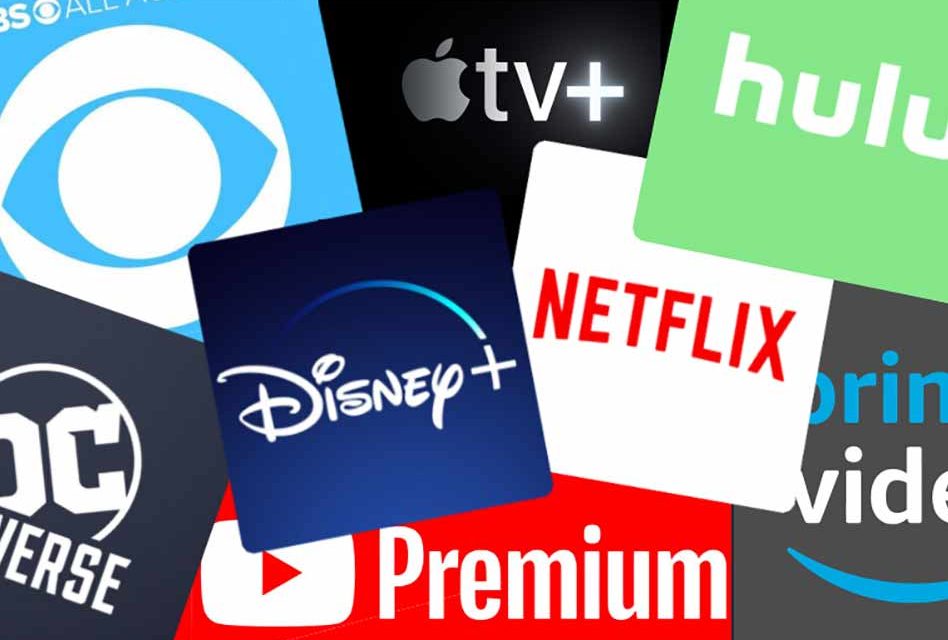Report: Making Streamers Pay Broadband Subsidy Means Pricier, Degraded Internet
ITIF says there should be plenty of funds without tapping edge providers

The smarter way to stay on top of the streaming and OTT industry. Sign up below.
You are now subscribed
Your newsletter sign-up was successful
If the FCC decides to make online content companies like Netflix and Amazon Prime Video pay into its subsidy pool for universal broadband, it will mean a worse and more expensive internet, according to a report produced by the Information Technology & Innovation Foundation.
ITIF supporters and board members include both current and former members of Congress from both parties and representatives from Google, Meta and Microsoft.
Also: FCC Seeks Authority to Add Edge to USF
The Federal Communications Commission has been deciding whether and how to expand those paying into its Universal Service Fund (USF) broadband subsidies and suggested to Congress that it could add broadband content companies to that roster, but would need lawmakers to give it that authority. Some argue it already has that authority but the FCC has sought clarification from Congress.
The FCC needs to find more money because the USF is based on fees on traditional telecom phone service, which has been migrating to internet-based phone services.
The new report, co-authored by ITIF director of broadband and spectrum policy Joe Kane and Jessica Dine, research assistant for broadband policy at ITIF, says making edge providers pay into the fund to expand the dwindling fee base would be a mistake.
"[T]he economics of internet traffic dictate that idea would backfire by raising prices for consumers and lowering the quality of online services," the report concludes.
The smarter way to stay on top of the streaming and OTT industry. Sign up below.
Why? The report points to sender-party-pay policies. In South Korea, for example, content providers like Netflix pay a set price to have their broadband content delivered to customers. The ITIF report says that led to less-efficient internet traffic, higher prices and lower quality, a fate it suggests would await a U.S. policy of making content providers pay into USF.
"If Congress expands USF fees to content providers, then American consumers will face some of the same problems that South Korean consumers are already experiencing," Kane said.
In addition, the report says, it's unlikely the universal broadband effort will go begging without a new influx of USF support, given the tens of billions of dollars in congressional subsidies authorized through COVID-19 and infrastructure-related legislation.
If that money is wisely spent by the federal and state governments — most of the money is being handed out by states — it makes more sense to scale back, not ramp up, USF support, Kane said.
In a report to Congress earlier this year on the state of USF that drew from comments it had solicited, the FCC said Monday (August 15) that if it did decide to include streamers and other edge providers, including digital ad companies, in the contribution base, it could be a lengthy process without some help from the Hill. The FCC said its authority to make edge providers and others pay into USF is not clear.
"The Commission has never analyzed its authority to regulate edge providers, which broadly defined, encompass a wide variety of different entities that provide Internet content, applications, and services," the FCC told Congress. "Before the Commission could require contributions under its permissive authority for any type of edge provider, it would need to conduct a rulemaking proceeding and establish a record that analyzed and applied the definition of ‘telecommunications’ to edge providers and demonstrated that the public interest supports requiring contributions."
As for making cable and telecom broadband providers pay into the subsidy — costs that are passed on to subscribers — the report suggested that could be problematic. Adding those costs to subscribers’ bills could potentially work against the administration’s goal, in creating the subsidy, of making broadband more affordable. But the FCC did not rule out making providers pay, again, if Congress steps in to clarify its authority to do so. ■
Contributing editor John Eggerton has been an editor and/or writer on media regulation, legislation and policy for over four decades, including covering the FCC, FTC, Congress, the major media trade associations, and the federal courts. In addition to Multichannel News and Broadcasting + Cable, his work has appeared in Radio World, TV Technology, TV Fax, This Week in Consumer Electronics, Variety and the Encyclopedia Britannica.

